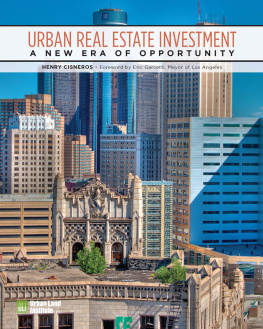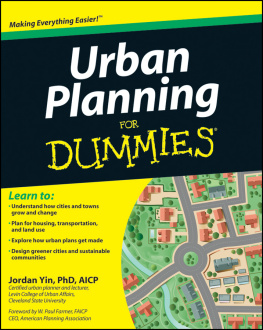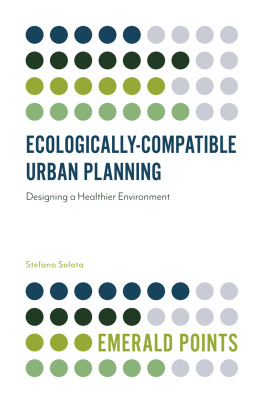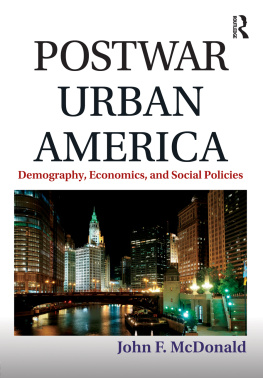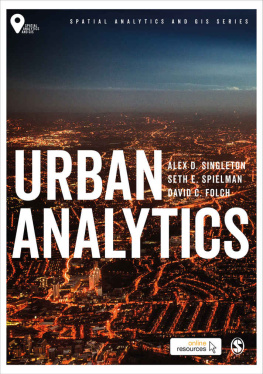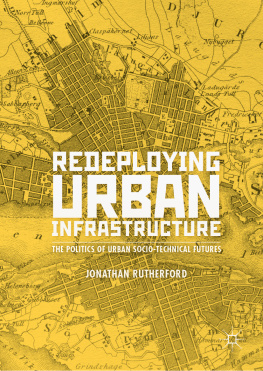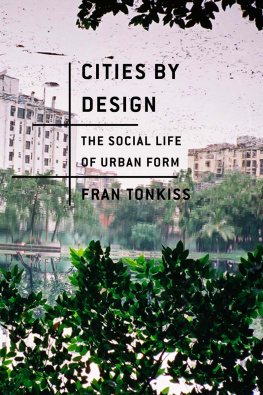Shaping Urban Futures in Mongolia
ECONOMIC EXPOSURES IN ASIA
Series Editor: Rebecca M. Empson, Department of Anthropology, UCL
Economic change in Asia often exceeds received models and expectations, leading to unexpected outcomes and experiences of rapid growth and sudden decline. This series seeks to capture this diversity. It places an emphasis on how people engage with volatility and flux as an omnipresent characteristic of life, and not necessarily as a passing phase. Shedding light on economic and political futures in the making, it also draws attention to the diverse ethical projects and strategies that flourish in such spaces of change.
The series publishes monographs and edited volumes that engage from a theoretical perspective with this new era of economic flux, exploring how current transformations come to shape and are being shaped by people in particular ways.
First published in 2020 by
UCL Press
University College London
Gower Street
London WC1E 6BT
Available to download free: www.uclpress.co.uk
Text Author, 2020
Images Author, 2020
Rebekah Plueckhahn has asserted her rights under the Copyright, Designs and Patents Act 1988 to be identified as the author of this work.
A CIP catalogue record for this book is available from The British Library.
This book is published under a Creative Commons 4.0 International license (CC BY 4.0). This license allows you to share, copy, distribute and transmit the work; to adapt the work and to make commercial use of the work providing attribution is made to the authors (but not in any way that suggests that they endorse you or your use of the work). Attribution should include the following information:
Plueckhahn R. 2020. Shaping Urban Futures in Mongolia: Ulaanbaatar, Dynamic Ownership and Economic Flux. London: UCL Press. DOI: https://doi.org/10.14324/111.9781787351523
Further details about Creative Commons licenses are available at http://creativecommons.org/licenses/
ISBN: 978-1-78735-154-7 (Hbk.)
ISBN: 978-1-78735-153-0 (Pbk.)
ISBN: 978-1-78735-152-3 (PDF)
ISBN: 978-1-78735-155-4 (epub)
ISBN: 978-1-78735-156-1 (mobi)
DOI: https://doi.org/10.14324/111.9781787351523
All photos and diagrams by the author.
This book places front and centre the lived experience of urban development and change in Ulaanbaatar, Mongolia. It does so through an ethnographic account of the ways in which urban residents attempt to own, and hold on to, forms of real estate during times of economic oscillation. Recent experiences of increased foreign direct investment and economic growth, followed by a drop-off in this investment, have deeply shaped Ulaanbaatars real estate economy and its construction sector. Forms of temporary access to land have created proliferating possibilities of converting urban land into assets. The fast rates of urbanisation occurring in many parts of the world are often buoyed by increased investment of capital and ensuing construction, yet these in turn often give rise to many other unseen effects, diverse economic practices, politics, ethics and urban subjectivities. Construction becomes simultaneously a solution and a problem (Gleeson 2014), especially when economic processes do not work as they should, or people are dispossessed of land to make way for further urban change.
This book traces how some of these phenomena have been experienced in Ulaanbaatar drawing from 12 months of fieldwork conducted over 201517. It explores expanding circulations of money, housing finance schemes, redevelopment processes and emerging urban ethics during times of economic fluctuation. Following different actions, strategies and techniques that form the ways in which residents precede and underwrite the owning of real estate property, Shaping Urban Futures in Mongolia considers Mongolian conceptualisations of growth, multiplication, fair portioning and land custodianship and the way they shape peoples engagement with their urban landscape. Connections are revealed between the intimate space of the home, formations and ideologies of the national economy, forms of urban development and disrepair and the types of politics and ethics that can arise as a result. Through residents attempts to own property in the city, Ulaanbaatar itself becomes a site of examination and critique, as a space of difficulty as well as potential. Here residents live and work within a dynamic urban economy that is intricately interconnected with transnational flows of finance and urban planning knowledge.
Such a topic explores some of the intersections between the anthropology of economy, ethics, politics and urbanisation. It integrates this with a consideration of Mongolian concepts of possession, ownership and custodianship. It does so with a consideration of Mongolias experiences with capitalism following the end of socialist governance in 1990. The cross-cutting themes explored in this ethnography stem from research that I conducted as part of a project funded by the European Research Council (ERC) entitled Emerging Subjects of The New Economy: Tracing Economic Growth in Mongolia. This research project was based at University College Londons Anthropology department and ran from 201419. I undertook a four-year postdoctoral research associate position in this project under the supervision of the project leader Professor Rebecca Empson. The Emerging Subjects project consisted of four anthropologists and a geographer, all of whom conducted individual research on different topics, including the extractive economy, nationalism, subjectivities and debt (to name a few). Overall our research examined the ways in which people experienced Mongolias recent significant period of economic growth and subsequent extreme economic downturn after 2013. As part of the preparation for field research we explored different anthropological approaches to the study of emerging economic subjectivities, capitalism, economic temporalities and resource economies. This formed a valuable, conceptual launchpad for exploring other themes that emerged in our own individual research.
My own research interests on these topics emerged earlier during my doctoral research located in Mongolias west, which I completed from 200813 at the Australian National University. This research focused on musical performance, intersubjectivity and social moralities in a rural west Mongolian district. Here I learned how performance formed part of the attempts made by different people to try and create good futures. The majority of fieldwork for my PhD occurred from 200910 a time when there was increased investment in Mongolias extractive sector. Many of my interlocutors at this time shared with me their anticipations of bright economic futures that were going to accompany this growth. Expectations of future wealth became part of my research on sociality and performance, as people correlated the possible causal effects of their own daily ceremonial and other musical sociality with its ability to harness fortune (hishig) and bring in good futures.
Musical performance thus formed part of an active prefiguration of futures people wanted to bring into being, implicating life in this rural area dependent on mobile pastoralism, the surrounding landscape, the climate and national economy of Mongolia as a whole. Researching peoples inter-generational, inherited custodianship of different musical knowledges, I also learned about perceptions of ownership, including engagements with spirit worlds embedded in the landscape and the responsibilities one carries when inheriting custodianship. The possession of rights to land access also pivoted around understandings of responsibility and negotiation of value. One cannot separate the cultivation of musical knowledge as a resource from that of the portioning and managing of landscape as a resource as well (cf. Humphrey 1995).



